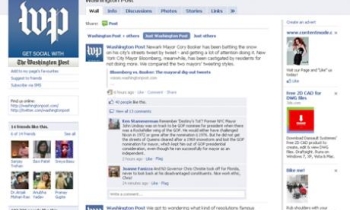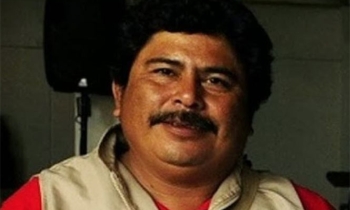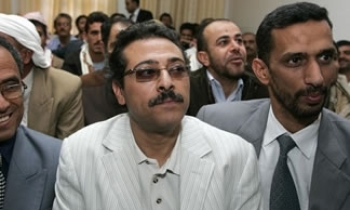The big story in Europe before Christmas was that the CIA operated clandestine prisons in eight European countries where it was questioning Al-Qaeda suspects and secretly flew the prisoners through European air space. Condoleezza Rice basically confirmed to European governments there had been clandestine flights, but "What prisons?" and the host governments named said, "No way."
So it comes as a bit of an embarrassment when a Swiss newspaper has now printed the contents of a fax intercepted by the Swiss intelligence services last November from the Egyptian Foreign Ministry to the Egyptian embassy in London that confirmed the presence of such American secret prisons and that 23 Iraqis and Afghans had been interrogated at the Mikhail Kogalniceau base in Romania. It said there were other such prisons at bases in Ukraine, Kosovo, Macedonia, and Bulgaria. All the named countries had denied the presence of such prisons.
Now tiny Switzerland, from where this web site is produced, seldom finds itself embroiled in such international scandals. The Swiss are neutral observers, with obvious biases, on the world scene and embarrassing information is usually kept pretty quiet here, about at the same noise level as snow falling on the Matterhorn, and that’s the way people like it.
But now suddenly they find themselves thrust into the middle of a European-US spat because, and this is difficult to believe because Swiss officials are famous for keeping their mouths shut, someone at a very high level with access to very sensitive material, actually leaked to a newspaper! In Washington there would be amazement if there were not at least one good leak a day; Switzerland is not Washington. This kind of leak just isn’t done.
Putting the politics and embarrassments to one side for a moment, from a media perspective what actually happened before and after publication of the documents in the Sonntags Blick newspaper gives an interesting insight on how freedom of the press works here.
Once the leaked document fell into the newspaper’s hands � it isn’t saying how � there were meetings between the newspaper and the Swiss government, according to editor-in-chief Christoph Grenacher. The government reminded the newspaper that it was against the law to publish military secrets and also that telling the world that the Swiss have the capability to intercept satellite faxes might not be in the country’s best interests. The Swiss also said how embarrassing the fax could be to those governments that have denied the presence of such CIA prisons, and embarrassing to Switzerland itself for letting such information get out.
But the government officials never denied the authenticity of the document, nor did they go to court to attempt a pre-publication ban.
At the end of the day the newspaper decided to publish and damn the consequences. "We published the paper because we put human rights on a higher interest level than the interests of our own secret service," Grenacher said in a radio interview. Swiss law protects journalists from being forced to divulge their sources.
But once published, everything really did hit the fan! The next day the Army’s chief prosecutor started an investigation for publishing a document that had been marked secret by the secret service; the attorney general who already had started an investigation into whether there had been secret CIA flights through Swiss airspace expanded the investigation to the leaked document; the Swiss cabinet denounced the leak and a Parliamentary sub committee told the government to take action.
"Acting like this strikes a blow at the reputation and credibility of our country and is an offence," a government spokesman said.
Swiss law prohibits the publication of secret documents with a prison sentence of up to five years and/or a fine, but no one has ever served time for such an offense.
While the newspaper refused to say how it came by the document there is growing suspicion of a rift within the Swiss secret services between those who support US policies in Iraq and those who do not, and someone in the "does not" camp gave the document out.
What is a somewhat annoying to some politicians, though, is that the document was intercepted November 15, just three days after the 46-nation Council of Europe asked Swiss senator Dick Marty to investigate what has become known as the CIA Affair. Yet the intercepted document was never made available to Marty. Perhaps another example of Swiss neutrality.
Romanian Prime Minister Calin Popescu, meanwhile still strongly denies such prisons had existed in Romania. He has invited Sonntags Blick reporters and also European Commission experts to Romania to investigate the alleged locations.
Not that they would have much to see. Many European politicians believe that before Secretary of State Rice came to Europe in December to try and defuse the situation all the prisons had been closed so that she could say there were no such camps. "It’s not like Guantanamo Bay," Marty told a Swiss media conference this week. "It’s more like empty rooms where people have been interrogated or tortured or taken somewhere else," he said.
Marty, meanwhile, said he was personally convinced that the CIA had run secret prison operations in Europe, but he has yet to come up with absolute proof. He said his investigation needs at least another 12 months to complete.









